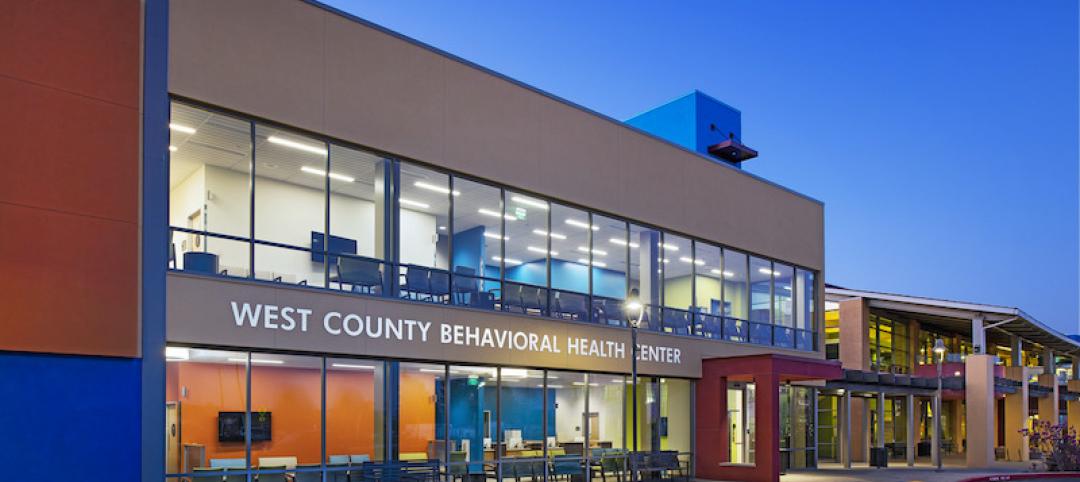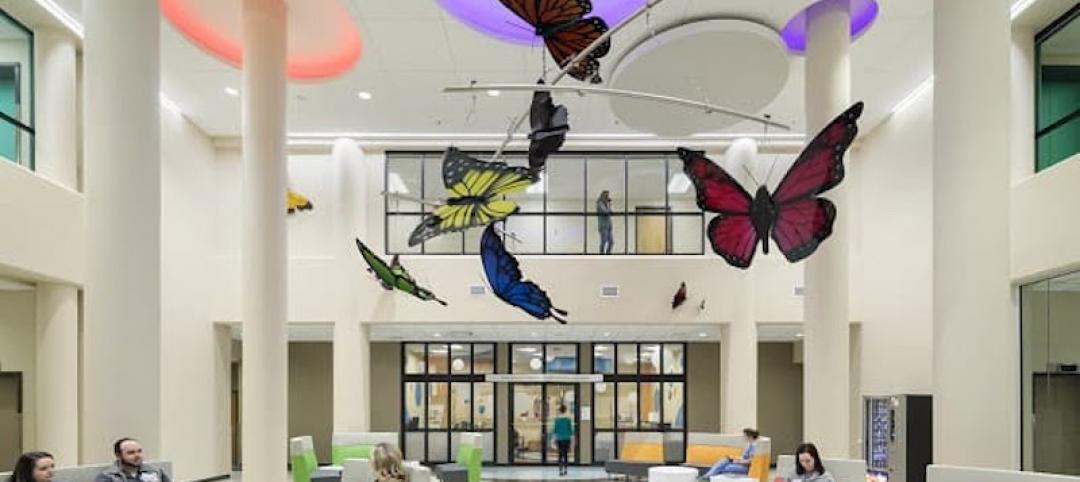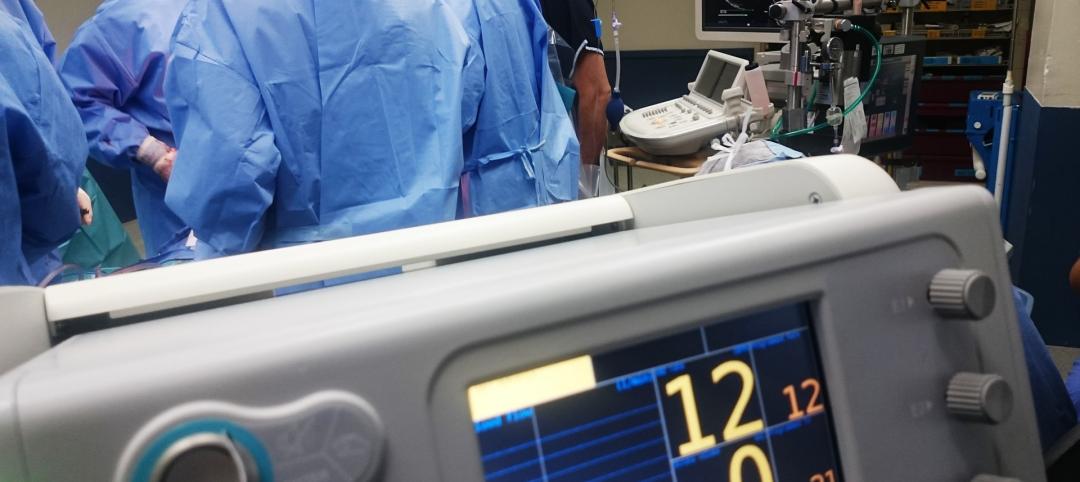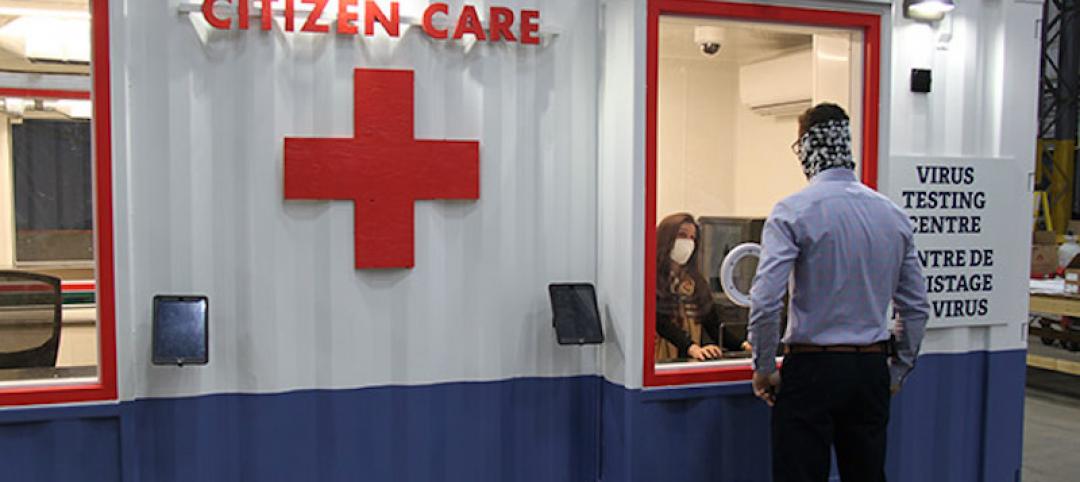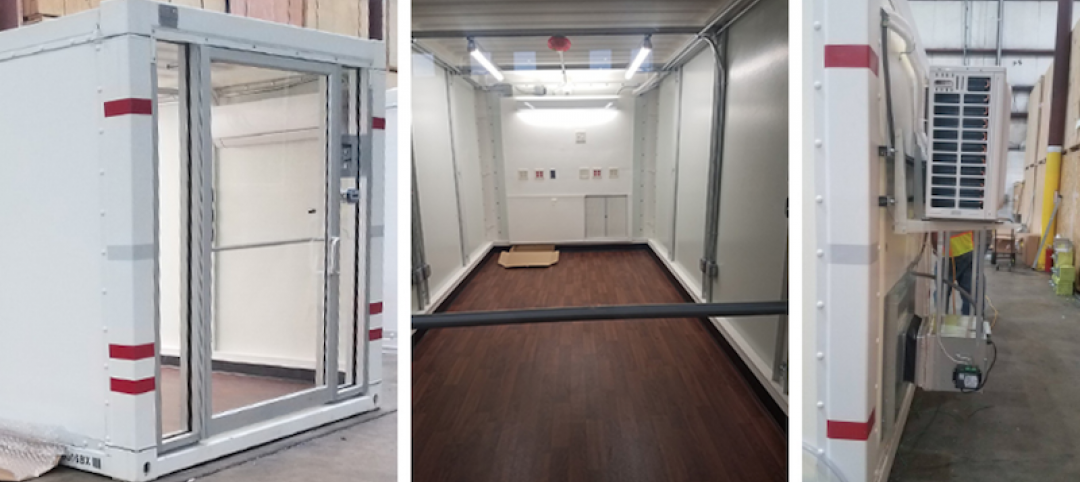Drone technology is slowly but steadily flying its way into the healthcare sector.
In late March, the WakeMed Health & Hospitals system started using drones to transport blood samples from a medical park in Raleigh, N.C., to its main hospital one-third of a mile away. Drones have been making that trip at least six times a day, five days a week, according to drone supplier Matternet, which is partnering in this program with the hospital, UPS, and the state’s Department of Transportation. This is the first time the Federal Aviation Administration has allowed regular commercial flights of drones to carry products, according to the Associated Press.
The FAA has also signed off on a test program in Nevada that would use drones to transport defibrillators to patients in rural areas during emergencies. That program, scheduled to start in Reno next year, will be supplied by the drone company Flirtey, whose machines will be pilot-controlled from remote locations.
Drones are seen as possible tools to support a hospital’s resilience. Leo A Daly’s Miami studio has developed a concept for a drone-powered hospital, which would use unmanned aerial vehicles (UAVs) to deliver food and medical supplies directly to patients.
Eduardo Egea, AIA, NCARB, a vice president and managing principal at the firm, says this idea was inspired by his personal experiences aiding relief efforts in Puerto Rico following Hurricane Maria, a natural disaster from which the island still hasn’t fully recovered.
During that storm, the entire island lost power. Many roads were either destroyed or impassable. Patients in hospitals were stranded without access to food, medication, or air conditioning. Indeed, Egea recalls trying to get family members off the island, including his father and mother, both in their late 70s, with one suffering from dementia and the other a cancer patient in remission.
He describes the drone-powered hospital as a new type of facility that incorporates autonomous aircraft into a supply chain that would include a network of fulfillment centers that the drones would draw from. In this “last mile” approach, “food, medicine, and other medical supplies are delivered directly to patients as needed via a drone port integrated into the exterior wall of each patient room,” explains Egea.
That port would, essentially, be a valve through which the docked cargo could slide and be accessed in a cabinet within the patient’s room.
Using drones in this manner would add another layer of resilience to the hospital’s operations. And by moving certain materials management, storage, food production, and pharmacy functions off-site, Egea estimates that a drone-powered hospital could be 15% to 17% smaller in square footage.
Leo A Daly is currently looking for partners to test this concept with healthcare systems, retailers, and suppliers. It developed its concept as a “what if” for the future 64-bed Guaynabo City Hospital in Puerto Rico, which is still in the planning stage and has yet to send out an RFP. “A potential outcome is to find a best possible use for the site via a public private partnership,” Egea tells BD+C.
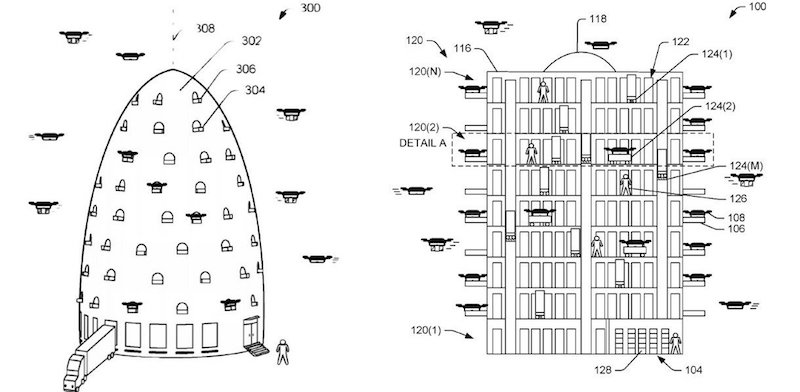
A patent-application image presented by Amazon that shows a beehive-shaped fulfillment center from which drones could pick up supplies for deliveries to occupants of hospitals, high-rises, and other buildings. Image: Amazon/U.S. Patent and Trademark Office
Egea says his firm is encouraged that its concept is feasible by Amazon’s vision of food distribution aligned with its recent acquisition of Whole Foods. Drone-powered delivery presents hospitals with opportunities to partner with pharma companies, food retailers, and other suppliers. “The concept of a drone-powered hospital touches many other industries, and involves many logistical, security, and technological questions that suggest business opportunities,” says Egea.
“The healthcare industry is getting away from the idea of large, complex facilities, and moving toward more ambulatory care,” he adds. “A drone-powered micro-hospital could be easily assembled and introduced into any community, supported by the strength of drone-assisted last-mile fulfillment.”
Related Stories
Healthcare Facilities | Jul 16, 2020
University of California San Francisco selects HDR and Herzog & de Meuron to design new hospital
The hospital is part of UCSF’s academic medical center.
Coronavirus | Jul 1, 2020
Are hospitals prepared for the next pandemic?
Caught off guard by COVID-19, healthcare systems take stock of the capacity and preparedness.
Healthcare Facilities | Jun 16, 2020
New facility in California homes in on behavioral health
This project went the extra mile to comply with the state’s design and construction regulations.
Coronavirus | Jun 12, 2020
BD+C launches 'The Weekly,' a streaming program for the design and construction industry
The first episode, now available on demand, features experts from Robins & Morton, Gensler, and FMI on the current state of the AEC market.
Healthcare Facilities | Jun 10, 2020
Istanbul opens biggest base-isolated hospital in the world
Cloud computing allowed complicated design to be completed in less than a year.
Healthcare Facilities | Jun 3, 2020
Jennifer Lawrence Cardiac Intensive Care Unit opens in Kentucky
The CICU is part of a larger redesign project for the entire hospital.
Coronavirus | May 22, 2020
COVID-19: Healthcare designers look to the future of medical facilities in light of coronavirus pandemic
The American College of Healthcare Architects (ACHA) has released the key findings of a survey of its members revealing their insights on the future of healthcare architecture and the role of design in the context of the COVID-19 healthcare crisis.
Healthcare Facilities | May 5, 2020
Holt Construction, U.S. Army Corps of Engineers complete temporary hospital in two weeks
The project is located in Paramus, N.J.
Coronavirus | Apr 26, 2020
PCL Construction rolls out portable coronavirus testing centers
The prefabricated boxes offer walk-up and drive-thru options.
Coronavirus | Apr 21, 2020
COVID-19 update: CallisonRTKL, Patriot, PODS, and USACE collaborate on repurposed containers for ACFs
CallisonRTKL and PODS collaborate on repurposed containers for ACFs




